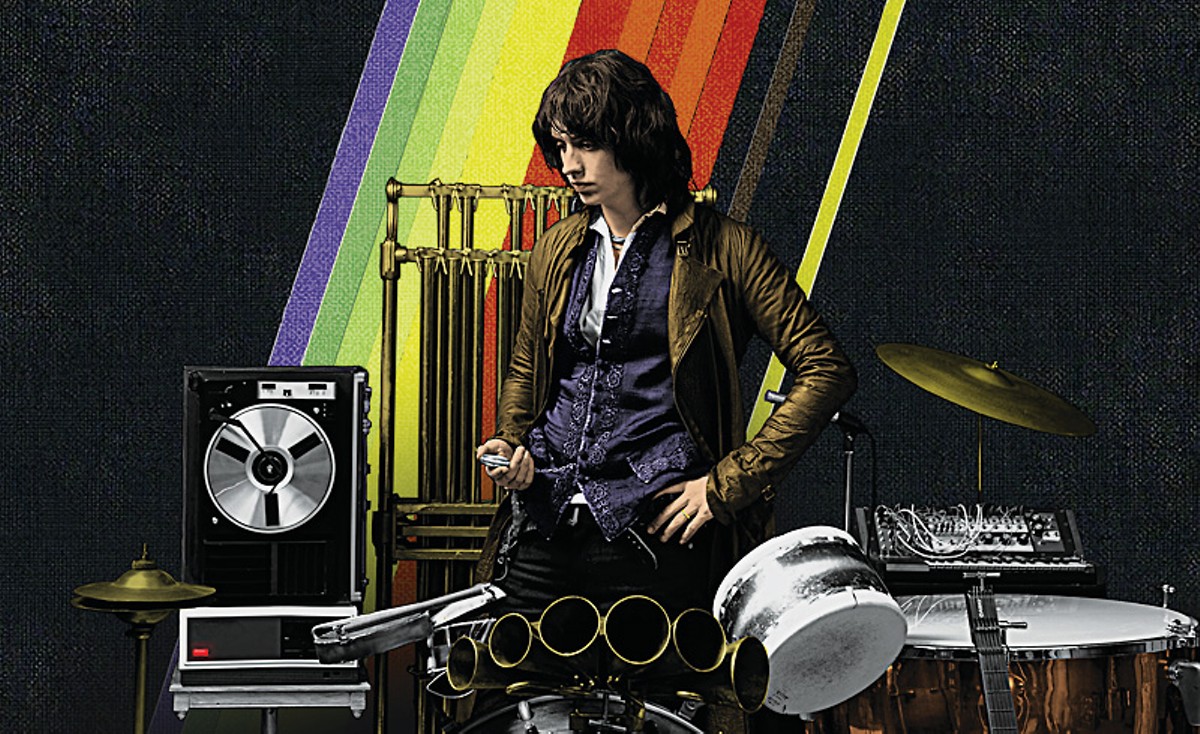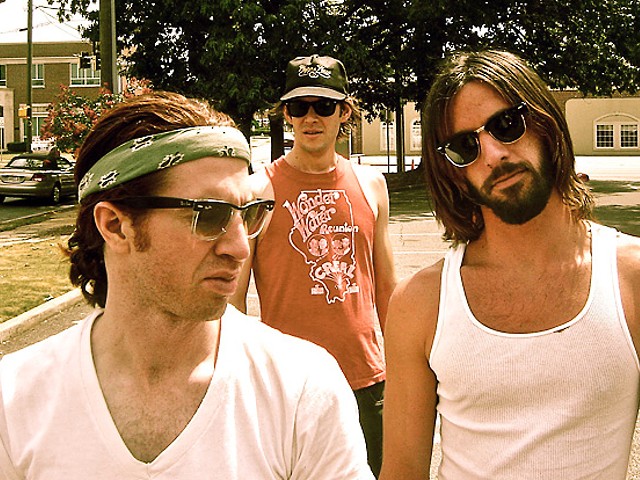Julian Casablancas — the lead singer of the Strokes, last decade's quintessential New York-cool band — is moving on. Not only is he on tour in support of his solo debut, last year's futuristic synth-rock collection Phrazes for the Young, but he's also performing with a relatively new touring band, and he recently became a father for the first time.
According to Casablancas, he's not stepping out permanently on the Strokes, however. The band — whose members have all released solo or side projects since 2006's First Impressions of Earth — is at work on a fourth album. Details are vague at the moment, but Casablancas' responses indicate that he has found a creative outlet for his ideas, with or without the band. After technical difficulties delayed our interview, B-Sides caught Casablancas at his tour stop in Indianapolis as he walked into a record-store signing.
B-Sides: First off, congratulations on being a new father! How's that going? I take it [son Cal] isn't on tour with you.
Julian Casablancas: It is a nightmare. [Laughs] Just kidding. No, he hasn't joined yet. He's gonna do a little Texas road trip, I believe. He's an awesome, magical little dude. Everyone said things were gonna change, but it just seems very natural for me. It's been awesome for me.
Do you have any records you're going to play for him?
Not particularly. I'm pretty picky with what's in my iTunes, so what he'll casually get to hear will hopefully affect him in a positive way.
If I ruled the world, Phrazes for the Young would be all over Top 40 radio — it's smart, I can dance to it.
[Laughs] Well, I hope you rule the world someday.
Well, that's the plan. [But] when music writers rule the world, we're all in trouble. Listening to the album, it feels like an update on '70s/'80s synthpop. There are electronic, industrial layers — even Strokes-sounding guitars. What were you listening to while you were making it? What were you pulling from?
I wanted it to sound simple, obviously, and not too overdone, but I knew I wanted, like, two drum beats. Hot Chip — I like their polyrhythmic vibe a lot, but I guess they have a little more of a dance groove. Hot Chip had a big influence, [but] I wanted big quality recording [reminiscent] of late-'70s Queen and Michael Jackson. The clarity of complexity.
I heard you say in some other interview that you wanted to work in classical music, [that you liked] the power of classical music. Are there classical music influences? Where do I listen for that?
I could've said I liked jazz music or something like that, I was talking more about just something between, you know, pop music and [background noise]...music that's not super simple that's also catchy.
All right, let's talk about the live show: What can the crowd expect?
It's cool because people don't know what to expect. People are usually pleasantly surprised to see all the parts are working organically and everyone's actually playing all that crazy stuff. It was a challenge to get it to work like that, but it's a pretty good payoff to see it all, like, real.






